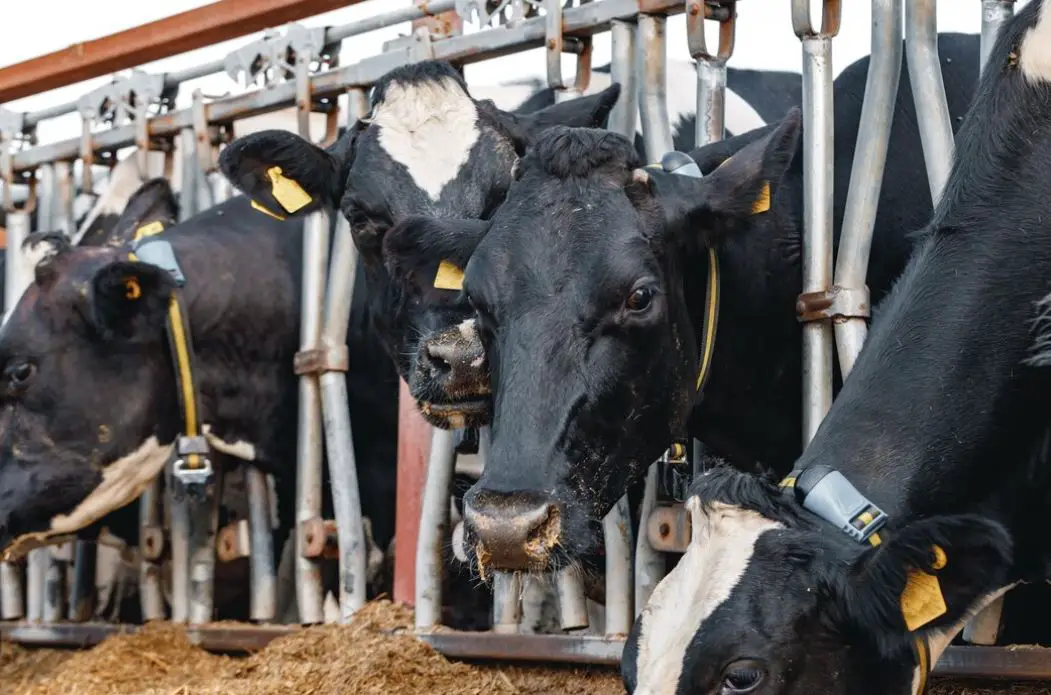Scientists Breed Climate-Smart Cows with 10 to 20 Times More Milk Output

In recent years, concerns about the environmental impact of cattle farming and its contribution to climate change have gained significant attention. Cattle are known to produce methane during digestion, a potent greenhouse gas that has a much higher warming potential than carbon dioxide.
Additionally, deforestation often occurs to make way for cattle grazing, which not only releases stored carbon from trees but also disrupts the natural process of photosynthesis, which absorbs carbon dioxide.
To make matters worse, the management of cow manure can leave a considerable carbon footprint, with the potential release of methane and other harmful gases into the atmosphere.
A Glimpse into the Challenge
The environmental challenges posed by conventional cattle farming are clear, but what if we told you that scientists have engineered a groundbreaking solution? Meet the concept of “climate-smart cows.”
In this article, we explore how scientists are pushing the boundaries of farming innovation, developing cows that can potentially produce 10 to 20 times more milk while mitigating the environmental issues associated with traditional cattle farming.
Redefining the Dairy Industry
A New Breed of Cows
Imagine a world where cows are not only milk producers but also climate warriors. Scientists have embarked on a mission to engineer cows with a remarkable transformation in mind. These climate-smart cows are specially bred to address the environmental concerns linked to cattle farming.
The Methane Dilemma
One of the major issues with traditional cattle farming is the production of methane during the digestion process. Methane, a potent greenhouse gas, is primarily released into the atmosphere through cow belching.
However, scientists are working tirelessly to modify the digestive processes of these climate-smart cows to reduce methane emissions significantly.
Combating Deforestation
Cattle farming often leads to deforestation, as forests are cleared to create grazing lands. This deforestation not only releases stored carbon but also disrupts the Earth’s natural ability to absorb carbon dioxide through photosynthesis.
Climate-smart cows are part of the solution to this problem. By improving the efficiency of milk production, they can potentially reduce the need for vast grazing areas, thereby curbing deforestation.
Sustainable Manure Management
The management of cow manure is another aspect of cattle farming that contributes to environmental issues. When handled improperly, cow manure can release methane and other harmful gases into the atmosphere.
Climate-smart cows come equipped with innovations in manure management, ensuring that these emissions are minimized.
The Future of Climate-Smart Cows
The development of climate-smart cows is a testament to human ingenuity and the drive to address pressing environmental concerns.
By enhancing milk production and reducing the environmental footprint of cattle farming, these engineered cows have the potential to revolutionize the dairy industry.
But what exactly is the science behind this innovation?
The Science Behind Climate-Smart Cows
Scientists are employing a combination of selective breeding, genetic modification, and advanced feeding techniques to create these climate-smart cows. Let’s delve into the specifics:
Selective Breeding
Selective breeding is a fundamental aspect of creating climate-smart cows. By selecting cows with lower methane emissions and higher milk production as parents, scientists are gradually developing a more sustainable and productive breed.
Genetic Modification
Genetic modification techniques enable scientists to fine-tune the digestive systems of these cows. By modifying specific genes, they can reduce methane production during digestion, making the cows more environmentally friendly.
Advanced Feeding
Diet plays a crucial role in methane production. Climate-smart cows are fed carefully formulated diets that further reduce methane emissions. This innovative approach not only benefits the environment but also enhances milk production.
The Path to a Greener Future
The concept of climate-smart cows represents a significant step toward a more sustainable and environmentally friendly future for the dairy industry.
By addressing the issues of methane emissions, deforestation, and manure management, these engineered cows offer a ray of hope in the battle against climate change.
Conclusion
In a world grappling with the challenges of climate change and environmental sustainability, the development of climate-smart cows stands as a testament to human innovation and the commitment to finding solutions.
By redefining the dairy industry, these engineered cows have the potential to not only provide more milk but also mitigate the detrimental environmental effects of traditional cattle farming. As we look to the future, it is clear that science and technology are vital allies in our quest for a greener, more sustainable planet.
